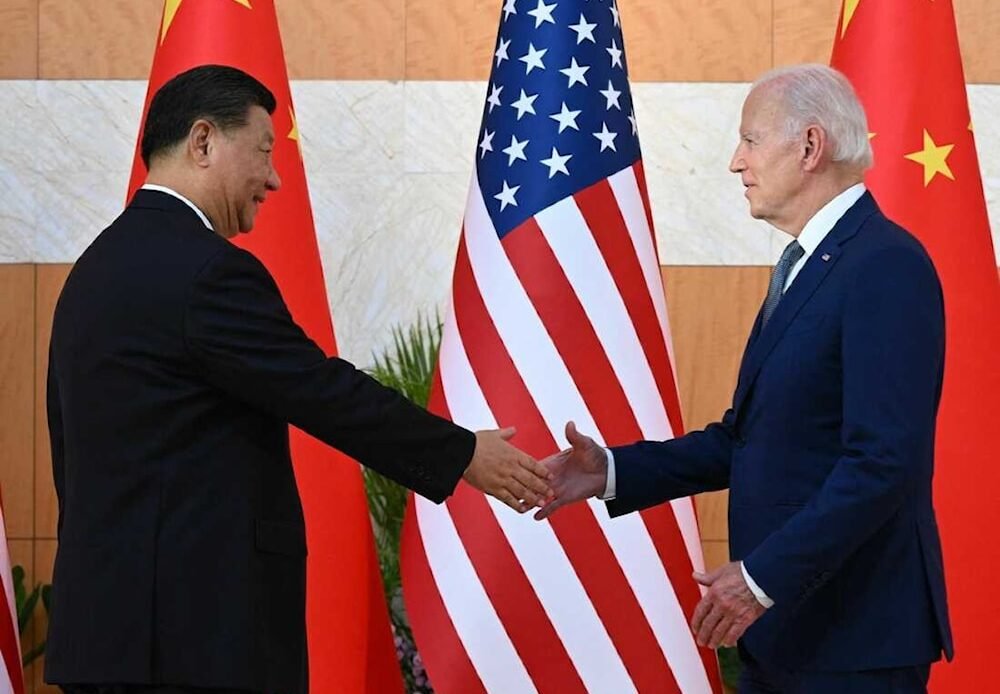The Chinese president is planned to meet with Biden for the second time during the American’s president term.
Chinese President Xi Jinping arrived in San Francisco on Tuesday, marking his first visit to the United States in six years, as relations between the two countries have significantly deteriorated in the past years due to Washington’s increasingly hostile policies against Beijing and its encroaching on its geopolitical sphere, particularly regarding Taiwan.
Xi is scheduled to have a direct meeting on Wednesday with President Joe Biden for the first time in a year, and the second time since the US president assumed office.
The trip, which coincides with the Asia-Pacific Economic Cooperation (APEC) summit, is hoped to ease some of the tensions, which have reached an all-time high in the past few years, through mutual economic interests.
The summit is a gathering point for leaders from 21 countries across the Asia-Pacific region, focusing on fostering trade and economic cooperation.
“[Biden] is determined to see the re-establishment of military-to-military ties because he believes it’s in the U.S. national security interest,” U.S. National Security Advisor Jake Sullivan said in an interview with CBS on Monday.” “We need those lines of communication so that there aren’t mistakes or miscalculations or miscommunication.”
Gaza, Ukraine to be points of discussion
Meanwhile, President Biden expressed on Tuesday that resuming communications on these matters would deem the meeting a success.
As outlined by Sullivan, the agenda for the Xi-Biden meeting in California includes complex global issues such as the Israeli war on Gaza and the ongoing situation in Ukraine. The US president also plans to address US concerns regarding Iran, with a focus on its nuclear program.
China considers the “One China principle” a main condition when engaging with foreign countries. The political doctrine was reached during a joint communique between the US and the PRC, whereby both sides acknowledge “that all Chinese on either side of the Taiwan Strait maintain there is but one China and that Taiwan is a part of China” and “does not challenge that position.”
But in recent years, despite claiming otherwise, the US has been breaching its commitment to the policy, as it held several high-level meetings with Taiwanese officials, boosted weapons sales to the island, and increased its military presence in the Taiwan Strait.
The discussions scheduled between the two leaders, according to US officials, are more about ensuring that tensions remain within a manageable frame than anything else expected by many.
“This is not the relationship of five or 10 years ago, we’re not talking about a long list of outcomes or deliverables,” one official said.
“The goals here really are about managing the competition, preventing the downside of risk – of conflict, and ensuring channels of communication are open.”
Source: alMayadeen



